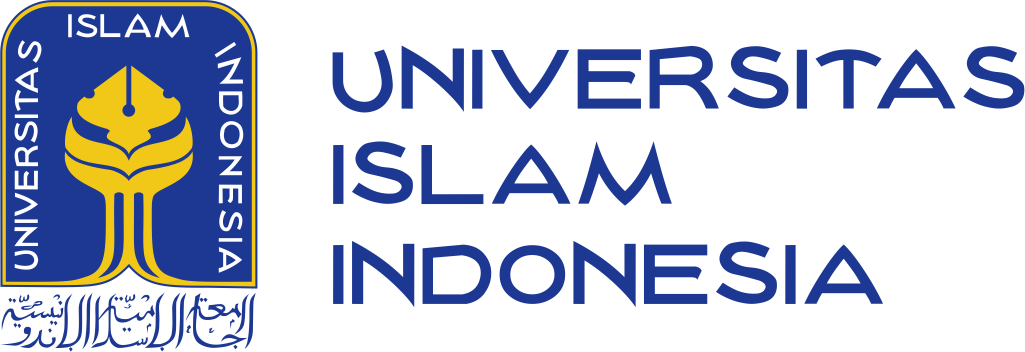
Gedung GBPH Prabuningrat (Rektorat)
Kampus Terpadu Universitas Islam Indonesia
Jl. Kaliurang km. 14,5 Sleman, Yogyakarta 55584 Indonesia
Telepon: +62 274 898444
Faks: +62 274 898459
Email: info[at]uii.ac.id

Akreditasi Institusi Unggul. Universitas Islam Indonesia telah mendapatkan Akreditasi Institusi Unggul dari Badan Akreditasi Nasional Perguruan Tinggi (BAN-PT) pada tahun 2022.

Konsisten, Kunci Menguasai Bahasa Inggris
Penting memiliki target dalam belajar bahasa. Dengan begitu, pelajar memiliki capaian yang terarah dalam menguasai suatu kompetensi, terutama dalam kemampuan speaking bahasa Inggris. Namun nyatanya, itu saja tidak cukup untuk menguasai kemampuan speaking. Diperlukan konsistensi dan jam terbang tinggi selama proses belajar untuk terus menerus mengevaluasi dan memperkaya apa yang sudah dipelajari dan yang akan dipelajari. Demikian diungkapkan Diah Agustina Ratu, S.Pd, dan Fatchan Faturrahman, S.Pd. dalam webinar bertajuk English as a Map of Culture yang diadakan oleh Fakultas Psikologi dan Ilmu Sosial Budaya Universitas Islam Indonesia (FPSB UII) pada Selasa (28/7).
Read more
Menggapai Keluarga yang Sakinah Mawadah Warahmah
Agama Islam adalah agama yang memiliki tiga tiang utama, yaitu akidah, syariah, serta akhlak. Islam dihadirkan oleh Allah melalui perantara Nabi Muhammad Saw. sebagai panduan bagi manusia dalam meniti jalan yang lurus, yang tujuannya tidak lain adalah untuk beribadah kepada Allah Swt. Salah satu aspek dalam bidang fiqih ilmu Agama Islam mengajarkan tentang membangun keluarga dengan pasangan masing-masing. Dalam Quran Surah Adz-Dzariyat ayat 49, Allah bersabda yang artinya: “Dan segala sesuatu Kami ciptakan berpasang-pasangan supaya kamu mengingat kebesaran Allah”. Melalui ayat ini dapat diambil kesimpulan bahwa berpasangan dan berkeluarga sudah menjadi fitrah bagi makhluk hidup, khususnya manusia.
Read more
Pentingnya Peran Apoteker dalam Pelayanan Kesehatan
Apoteker mempunyai peran penting dalam pelayanan kesehatan yang berfokus pada pasien, terlebih dalam menjamin ketersediaan obat yang bermutu ditinjau dari segi keamanan dan efektivitas pengelolaannya. Rendahnya pengakuan peran Apoteker dalam Sistem Kesehatan Nasional berakibat pada tidak terlibatnya peran Apoteker dalam mengatasi berbagai masalah kesehatan secara nasional. Hal ini dikarenakan belum adanya payung hukum yang mengatur tentang praktik kefarmasian.
Read more
UII Kembangkan Desa Wisata Benowo Lewat KKN PPM Daring
Memasuki new normal, sejumlah obyek wisata di Kabupaten Purworejo, Jawa Tengah telah dibuka kembali mulai Sabtu, 13 Juni 2020. Pada awal pembukaan ini, Dinas Pariwisata dan Kebudayaan (Dinparbud) menerapkan pembatasan-pembatasan sesuai protokol kesehatan. Beberapa sarana prasarana penunjang berupa thermogun, tempat cuci tangan, serta APD standar telah dipersiapkan. Protokol kesehatan ini juga diterapkan pada obyek wisata yang dikelola mandiri oleh desa atau komunitas dan obyek wisata yang merupakan fasilitas publik.
Read more
Idul Adha, Mengambil Hikmah dari Kisah Nabi Ibrahim dan Ismail
Idul Adha atau yang dikenal dengan Hari Raya Haji merupakan hari raya umat Islam yang jatuh setiap tanggal 10 Dzulhijjah. Momen Idul Adha tidak dapat dilepaskan dengan peristiwa yang menimpa keluarga Nabi Ibrahim AS. Peristiwa itu tercantum dalam Quran Surah Ash-Saffat ayat 100-103. Kala itu, Nabi Ibrahim dan Siti Hajar, isterinya sangat menantikan kehadiran calon buah hati mereka. Untuk itu lah mereka tak henti meminta kepada Allah Swt. agar diberikan keturunan yang dapat melanjutkan misi dakwahnya.
Read more
Sejarah Pers dan Performance Research dalam Ilmu Komunikasi
Meskipun Ilmu komunikasi masuk ke dalam bidang humaniora, bukan berarti selalu menjadikan kultur masyarakat sebagai kajian keilmuan. Sejarah pers atau proyek eksebisi ternyata dapat dijadikan dasar kajian ilmu komunikasi. Gagasan ini menjadi sajian utama dalam Serial Bincang Sejarah Komunikasi: Penerapan Studi Sejarah Komunikasi: Kasus Jurusan Ilmu Komunikasi Universitas Brawijaya yang diadakan oleh Program Ilmu Komunikasi Universitas Islam Indonesia (UII) pada Minggu, (26/7) secara daring, dengan menghadirkan Dr. Antoni, M.Si. sebagai pembicara.
Read more
Menata Ulang Tujuan di Era New Normal
Penerapan new normal di kala pandemi menjadi tantangan tersendiri bagi para akademisi. Pengembangan dan optimalisasi potensi menjadi fokus utama. Pertanyaan kerap muncul, apakah kegiatan selama waktu pandemi ini merupakan hal yang kita butuhkan, atau hanya sekedar produktif ikut-ikutan. Topik ini mendasari Central Language Improvement (CLI) UII, menyelenggarakan diskusi dalam webinar bertajuk Seeing Yourself Growth and Become Potential Youth In The New Normal Era, pada Minggu (26/7).
Read more
Strategi Pembelajaran Daring Selama Pandemi
Banyak aspek kehidupan yang mulai ditata ulang dalam menghadapi pandemi Covid-19. Sekolah sebagai tempat belajar harus dilakukan di rumah. Hal ini yang terkadang dapat membuat stress para orangtua dalam mendampingi belajar daring anak-anaknya. Ikatan Keluarga Alumni Teknik Indutri Universitas Islam Indonesia (UII) pada Minggu (26/7) mengadakan webinar bertema strategi pembelajaran daring untuk orangtua selama pandemi. Webinar ini merupakan salah satu bentuk kolaboraksi satu visi menuju 40 tahun Teknik Industri UII pada 2022.
Read more
Menjadi Generasi Qurani di Tengah Pandemi
Umat Islam dalam menjalani kehidupan senantiasa berpedoman pada kitab suci Al-Qur’an. Membacanya barang satu huruf pun diyakini telah bernilai pahala. Direktorat Pendidikan dan Pembinaan Agama Islam Universitas Islam Indonesia (DPPAI UII) mendirikan lembaga dakwah kampus yang diberi nama Hafizh Hafizhah Mahasiswa (HAWASI) guna membantu proses belajar mahasiswa dalam tahapan tahsin maupun tahfidz Al-Qur’an. Pada Minggu (26/7), HAWASI mengadakan kajian online dalam rangka penutupan masa belajar sekolah tahsin dan tahfidz semester genap 2020.
Read more
Simak Tips Agar Podcast Jaring Banyak Audiens
Podcast adalah media berupa audio non-streaming yang bisa disajikan melalui audio, radio, maupun video. Perkembangan zaman membawa kemajuan juga bagi dunia podcast yang menghasilkan banyak inovasi. Kini popularitas podcast merangkak naik mengikuti platform media digital lainnya. UII Learning Center pada Minggu (26/7) mengadakan workshop podcast dengan mengundang Dr. Xia Cui, seorang podcaster sekaligus pengajar di Melbourne University untuk berbagi ilmu pada kegiatan tersebut.
Read more